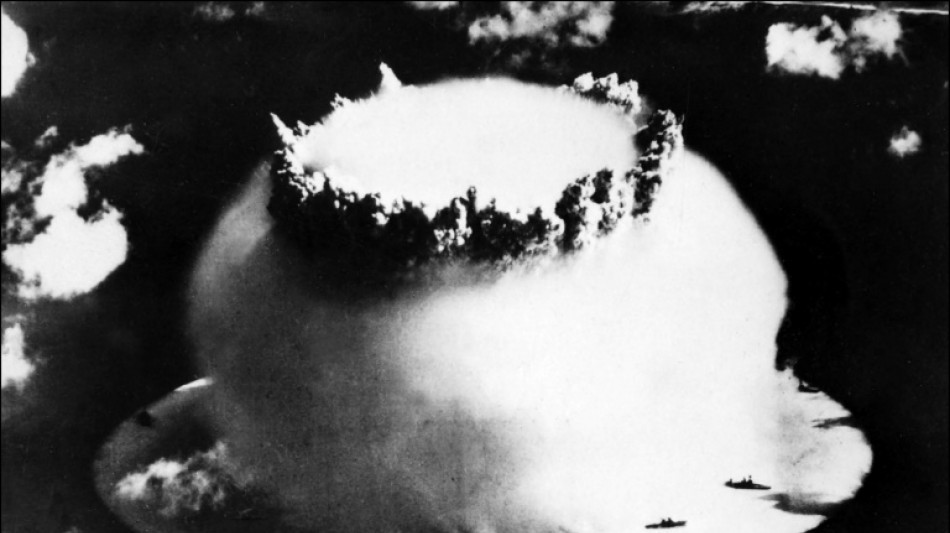
-
 Barca strengthen Liga lead at Villarreal, Atletico go third
Barca strengthen Liga lead at Villarreal, Atletico go third
-
Third 'Avatar' film soars to top in N. American box office debut

-
 Third day of Ukraine settlement talks to begin in Miami
Third day of Ukraine settlement talks to begin in Miami
-
Barcelona's Raphinha, Yamal strike in Villarreal win

-
 Macron, on UAE visit, announces new French aircraft carrier
Macron, on UAE visit, announces new French aircraft carrier
-
Barca's Raphinha, Yamal strike in Villarreal win

-
 Gunmen kill 9, wound 10 in South Africa bar attack
Gunmen kill 9, wound 10 in South Africa bar attack
-
Allegations of new cover-up over Epstein files

-
 Atletico go third with comfortable win at Girona
Atletico go third with comfortable win at Girona
-
Schwarz breaks World Cup duck with Alta Badia giant slalom victory

-
 Salah unaffected by Liverpool turmoil ahead of AFCON opener - Egypt coach
Salah unaffected by Liverpool turmoil ahead of AFCON opener - Egypt coach
-
Goggia eases her pain with World Cup super-G win as Vonn takes third

-
 Goggia wins World Cup super-G as Vonn takes third
Goggia wins World Cup super-G as Vonn takes third
-
Cambodia says Thai border clashes displace over half a million

-
 Kremlin denies three-way US-Ukraine-Russia talks in preparation
Kremlin denies three-way US-Ukraine-Russia talks in preparation
-
Williamson says 'series by series' call on New Zealand Test future

-
 Taiwan police rule out 'terrorism' in metro stabbing
Taiwan police rule out 'terrorism' in metro stabbing
-
Australia falls silent, lights candles for Bondi Beach shooting victims

-
 DR Congo's amputees bear scars of years of conflict
DR Congo's amputees bear scars of years of conflict
-
Venison butts beef off menus at UK venues

-
 Cummins, Lyon doubts for Melbourne after 'hugely satsfying' Ashes
Cummins, Lyon doubts for Melbourne after 'hugely satsfying' Ashes
-
'It sucks': Stokes vows England will bounce back after losing Ashes

-
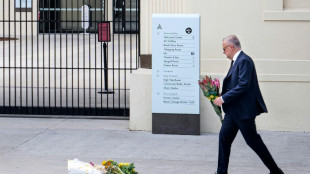 Australia probes security services after Bondi Beach attack
Australia probes security services after Bondi Beach attack
-
West Indies need 462 to win after Conway's historic century

-
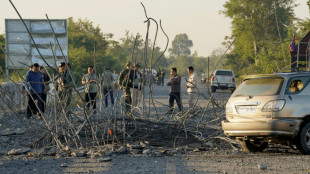 Thai border clashes displace over half a million in Cambodia
Thai border clashes displace over half a million in Cambodia
-
Australia beat England by 82 runs to win third Test and retain Ashes

-
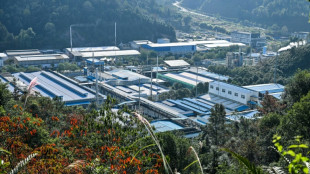 China's rare earths El Dorado gives strategic edge
China's rare earths El Dorado gives strategic edge
-
Japan footballer 'King Kazu' to play on at the age of 58

-
 New Zealand's Conway joins elite club with century, double ton in same Test
New Zealand's Conway joins elite club with century, double ton in same Test
-
Australian PM orders police, intelligence review after Bondi attack
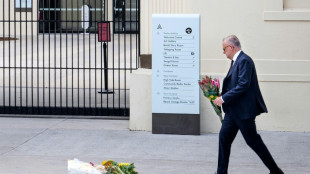
-
 Durant shines as Rockets avenge Nuggets loss
Durant shines as Rockets avenge Nuggets loss
-
Pressure on Morocco to deliver as Africa Cup of Nations kicks off

-
 Australia remove Smith as England still need 126 to keep Ashes alive
Australia remove Smith as England still need 126 to keep Ashes alive
-
Myanmar mystics divine future after ill-augured election

-
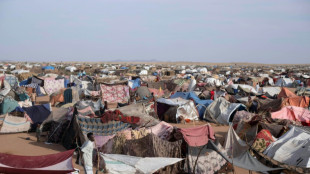 From the Andes to Darfur: Colombians lured to Sudan's killing fields
From the Andes to Darfur: Colombians lured to Sudan's killing fields
-
Eagles win division as Commanders clash descends into brawl

-
 US again seizes oil tanker off coast of Venezuela
US again seizes oil tanker off coast of Venezuela
-
New Zealand 35-0, lead by 190, after racing through West Indies tail

-
 How Can Gum Disease Lead to Tooth Loss in Kyle, TX?
How Can Gum Disease Lead to Tooth Loss in Kyle, TX?
-
West Indies 420 all out to trail New Zealand by 155

-
 Arteta tells leaders Arsenal to 'learn' while winning
Arteta tells leaders Arsenal to 'learn' while winning
-
Honour to match idol Ronaldo's Real Madrid calendar year goal record: Mbappe

-
 Dupont helps Toulouse bounce back in Top 14 after turbulent week
Dupont helps Toulouse bounce back in Top 14 after turbulent week
-
Mbappe matches Ronaldo record as Real Madrid beat Sevilla

-
 Gyokeres ends drought to gift Arsenal top spot for Christmas
Gyokeres ends drought to gift Arsenal top spot for Christmas
-
Arsenal stay top despite Man City win, Liverpool beat nine-man Spurs

-
 US intercepts oil tanker off coast of Venezuela
US intercepts oil tanker off coast of Venezuela
-
PSG cruise past fifth-tier Fontenay in French Cup

-
 Isak injury leaves Slot counting cost of Liverpool win at Spurs
Isak injury leaves Slot counting cost of Liverpool win at Spurs
-
Juve beat Roma to close in on Serie A leaders Inter


Signs of the human era, from nuclear fallout to microplastics
As scientists make the case that humans have fundamentally transformed the planet enough to warrant our own geological epoch, another question arises: is there anything left untouched by humanity's presence?
Soaring greenhouse gases, ubiquitous microplastics, pervasive "forever chemicals", the global upheaval of animals, even old mobile phones and chicken bones -- all have been put forward as evidence that the world entered the Anthropocene, or era of humans, in the mid-20th century.
Jan Zalasiewicz, a British geologist who chaired the Anthropocene Working Group for over a decade, paused for a moment when asked if there was anywhere on Earth that lacked signs of human influence.
"It's hard to think of a more remote place" than the Pine Island glacier in Antarctica, Zalasiewicz told AFP.
Yet when scientists drilled deep below the glacier's ice a few years ago, they found traces of plutonium.
It was lingering fallout from nuclear weapon tests that began in 1945, leaving behind a radioactive presence unlike anything before.
Zalasiewicz said these radionuclides represented perhaps "the sharpest signal" to mark the start of the Anthropocene epoch 70 years ago.
But "there's an awful lot to choose from," he added.
On Tuesday, the Anthropocene Working Group is expected to announce its choice for the epoch's "golden spike" location, selecting the site that most clearly represents the many ways humans have changed the world.
However the announcement will not make the Anthropocene an official geological time unit just yet, as the world's geologists continue to sift through the evidence.
- The weight of humanity -
Another major calling card of the Anthropocene will likely come as little surprise: the rapid surge in carbon dioxide and other greenhouse gases that are heating the world.
Many things changed "once humans developed the technology to pull fossilised sunshine -- in the form of oil, coal and gas -- out of the ground," Zalasiewicz said.
Humans have consumed more energy since 1950 than was used in the previous 11,700 years of the Holocene epoch, the Anthropocene scientists have shown.
This new power was used to dominate the world in a way not previously possible. Both land and animals were deployed to feed the exploding human population.
Humans and their livestock make up 96 percent of the biomass of all land mammals on the planet, with wild mammals representing just four percent, researchers estimated in 2018.
Supermarket chickens, bred by humans to grow far larger than natural, account for two thirds of the biomass of all birds, Zalasiewicz said.
Humans also reshuffled species across the globe, introducing invasive species such as rats to even the most remote Pacific islands.
- Technofossils, forever chemicals -
In 2020, researchers estimated that the mass of all objects made by humans has now exceeded the weight of all living things on the planet.
The Anthropocene researchers called these objects "technofossils".
Successive generations of mobile phones, which so quickly become obsolete, were just one example of a technofossil that will "be part of the Anthropocene record," Zalasiewicz said.
Smaller pieces of plastic called microplastics have been detected on the planet's highest peaks and at the bottom of the deepest oceans.
Substances called PFAS or "forever chemicals," created for products such as non-stick cookware, are also being increasingly identified across the world.
Pesticides, fertilisers, increasing levels of nitrogen of phosphorus, even the buried skeletons of humans -- the list of potential Anthropocene markers goes on.
The scientists say that hundreds of thousands of years into the future, all of these markers will be clearly preserved to give our future ancestors -- or any other beings who care to look -- insight into this human era.
But what will this future geologist see happen next?
"One of the signals that you would want to see from the Anthropocene is humanity responding in a positive way," said Mark Williams, a British palaeontologist and member of the Anthropocene Working Group.
The fossil record does not yet show a mass extinction, but one "is now very much on the cards," he told AFP.
"We go two ways from here," he added.
So is there somewhere left on Earth that does not bear a human fingerprint?
The scientists agreed that the only such place was likely somewhere under the ice in Antarctica.
But if nothing changes, these ice sheets will be steadily melted by global warming, Zalasiewicz warned.
P.Mathewson--AMWN



